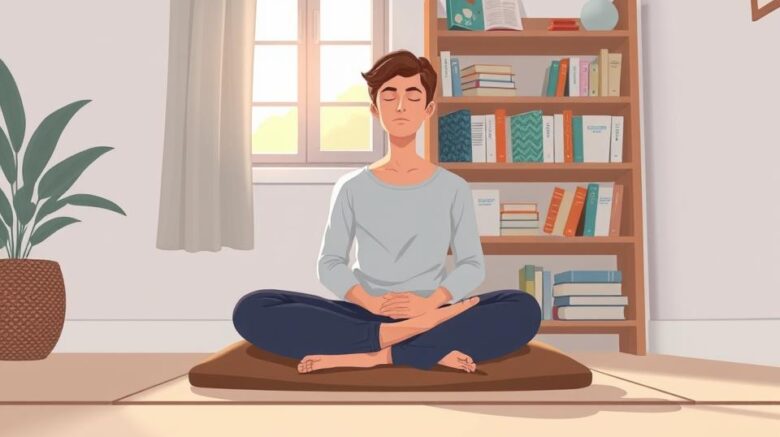Expert Clinical Mental Health Counseling Support
During challenging periods, beginning recovery often starts with reaching out for help. People frequently find reassurance through professional counseling. It offers a safe space for transformation and new perspectives. If dealing with anxiety, depression, or past trauma, personalized mental health guidance is critical. It acknowledges each person’s unique experiences and needs.
Expert counseling provides tailored interventions that respect individuality. Here, we examine the role of clinical virtual couples counseling near me. We show how expert help can strengthen resilience and overall wellness.
- Clinical mental health counseling delivers customized support for various emotive and psychological challenges.
- Expert counseling is vital for identifying individual needs and developing suitable strategies.
- Mental health guidance plays a major role in personal growth and recovery.
- Each person’s journey is unique, requiring individualized treatment approaches.
- Seeking help is a brave first step toward achieving mental well-being.
Understanding Clinical Mental Health Counseling
Clinical mental health counseling is about diagnosing and treating emotional and behavioral issues. It is key to improving overall well-being and managing mental disorders. They establish a trusting space to discuss difficulties and learn ways to cope.
Experts use multiple understanding counseling strategies. They might employ:
- Problem-solving strategies to help clients tackle specific issues.
- Therapy techniques tailored to individual needs, such as cognitive-behavioral therapy or person-centered therapy.
- Support and encouragement to foster resilience and empower clients in their healing journey.
When prioritizing mental health support, counselors significantly contribute to better personal well-being. It’s important to acknowledge their role in helping people overcome personal challenges and enhance their quality of life.
Different Types of Mental Health Professionals
Understanding the various mental health professionals is key when seeking care. Their qualifications, expertise, and methods vary. Understanding these differences is important for anyone seeking help.
- Psychiatrists: These medical doctors specialize in mental health and can prescribe medication. They manage complex conditions requiring pharmacological treatment.
- Psychologists: Focused on therapy, psychologists hold doctoral degrees in psychology. While they apply multiple therapeutic methods, they cannot give prescriptions.
- Licensed Counselors: Licensed counselors hold a master’s in counseling or similar disciplines. They offer therapeutic services for emotional and personal issues.
- Clinical Social Workers: Trained in therapy and resource connection, clinical social workers have master’s degrees in social work. Their care model is holistic.
- Psychiatric Nurses: They evaluate, diagnose, and manage mental illness. They work closely with patients and can prescribe medication in many states.
Each mental health professional offers unique services for specific needs. While finding local counseling services, consider the variation in roles. This choice improves your chances of effective treatment. Knowing the differences may result in more targeted treatment and improved well-being.

Choosing the Right Mental Health Professional
Choosing the right mental health professional is key to effective treatment. First, clarify the issues you want to address. Different issues need different specialties. So, it’s vital to identify what you need when selecting a mental health professional. For mental health counseling programs near me, ensure the provider’s qualifications and background are suitable.
Make sure to check the provider’s professional qualifications. Make sure they have the right licenses and experience in treating your condition. If medication is part of your treatment, finding a psychiatrist or someone who can prescribe is critical. Finding help also means ensuring your chosen provider accepts your insurance, as coverage can vary greatly.
Once you have a shortlist, make some questions to ask. Inquire about their treatment approach, experience with similar conditions, and the therapeutic techniques they use. With this knowledge, you’ll be more secure in your choice.
The first counseling session marks a major move toward addressing emotional or mental health issues. It starts with an initial assessment, vital for grasping your unique situation. You’ll talk about symptoms, past mental health, and your therapy goals. Every detail here will help plan your therapy.
Building a rapport with your counselor is critical. Clear dialogue underpins successful therapy. Your counselor will guide you while helping you stay comfortable. You will agree on set aims for your sessions.
Anticipating your first visit can be daunting. Being aware of the process can reduce nerves. Remember, this session is tailored for you. It’s your opportunity to share emotions and develop a fitting plan. Welcome this step toward healing and personal progress.
Common Therapies and Approaches in Mental Health Counseling
This form of counseling offers multiple treatment approaches for varied emotional needs. Familiarity with these therapies supports better treatment choices. CBT is widely used, focusing on changing harmful thought patterns through structured methods.
Psychodynamic therapy delves into unconscious processes and historical influences, providing insights into emotional struggles. For those seeking a more person-centered approach, humanistic therapy focuses on self-actualization and personal growth. Each method has a place depending on the unique needs of the person.
Group or family-based counseling is another key choice. They offer a safe space to explore relationships. Joining with relatives or peers in counseling can deepen bonds and bring shared understanding. Explore available formats when seeking therapy for better results.
Therapeutic Tools Used in Clinical Counseling
This counseling field uses important techniques to ensure success. These methods are designed to meet each client’s unique needs and goals. Mindfulness helps clients watch thoughts and emotions without judgment. It’s widely used in mental health treatment for boosting self-awareness and lowering anxiety.
Another major tool is behavioral activation. The aim is to involve clients in activities that matter to them. It boosts mood and wellness while giving structure.
Therapists also focus on gathering data through detailed assessments. They reveal which methods are most suitable. Collected details shape custom treatment plans.
Many sessions include exercises to apply learning. Clients can test and use skills between sessions. The careful use of these techniques can significantly impact a client’s journey towards healing and personal growth.
How Medication Fits into Mental Health Care
Medication is a vital part of mental health treatment, helping those with depression, anxiety, and bipolar disorder. Psychiatrists or nurse practitioners may provide psychiatry services near me. They adapt medicine plans to the individual.
Understanding how medications work is key when considering treatment. They help reduce issues so therapy is more effective. Pairing medicine with therapy boosts results. This approach improves treatment results and offers complete support.
Medication guidance involves ongoing dialogue. It includes dosage, reactions, and effectiveness. It also encourages patients to share their experiences, ensuring any necessary changes can be made quickly. It emphasizes personal awareness and tailored care.
Using medicine in treatment can enhance wellness. Often, the mix of counseling and medicine works best.
Making the Most of Mental Health Coverage
Knowing your insurance plan is important for proper care. Each insurance company has its own rules for mental health services. Check exactly what is covered. Start by checking the list of conditions and therapies your plan includes.
Choosing an in-network mental health professional can save you money. Your bill is smaller with network providers. Ask your insurer or search their site to check.
See whether therapy and medication have separate rules. Some insurance handles them differently. Know your payment responsibilities. It ensures maximum use of your plan.
Developing Coping Strategies
Effective coping strategies for mental health can greatly enhance an individual’s stress management and mental resilience. They support better handling of life’s difficulties. It’s vital to find and use stress management techniques that feel right for you.
Focus on making these techniques sustainable to keep them effective over time. Regular practice and reinforcement help build strong coping strategies. They help face challenges without fear.
Resources for Ongoing Support
Ongoing help maintains mental wellness. Community resources and support networks play a key role in providing assistance. Groups link people with shared issues, building belonging. People often find group therapy or workshops when looking for mental health resources near me.
Well-known bodies like NAMI and Mental Health America share knowledge and help. Their aim is education and tools for mental health navigation. Their online platforms serve as a rich resource for individuals seeking ongoing mental health support.
Staying in touch with mental health providers ensures a continuity of care vital for recovery. Ongoing contact helps tweak care plans. Engaging with support networks helps individuals feel less isolated, making the journey toward better mental health a collaborative effort.
Wrapping It Up
We’ve discussed how expert mental health advice helps. It’s essential for emotional and mental health goals. A better mind comes from partnership with professionals.
Proactively finding matching resources improves care. Learning about professionals, therapy, and coping skills is necessary. Each plays a role in wellness.
Mental health should be top priority in today’s busy life. Remember: seeking help is a strong step to better life. The resources discussed in this article are here to support you, ensuring you’re not alone in facing mental health challenges.
